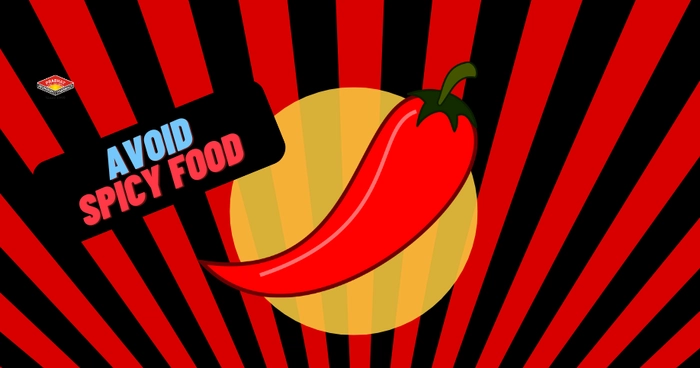Recently, Denmark recalled several types of spicy ramen noodles produced by the South Korean company Samyang. The specific flavors involved in the recall are Buldak 3x Spicy & Hot Chicken, 2x Spicy & Hot Chicken, and Hot Chicken Stew. Danish authorities initiated this recall due to concerns about the high levels of capsaicin, the active component in chili peppers responsible for their spiciness. Excessive capsaicin can pose health risks, including potential poisoning.
The Side Effects of Consuming Very Spicy Food
While many people enjoy the thrill of eating extremely spicy foods, it is important to be aware of the potential side effects. High consumption of capsaicin can lead to several health issues, including:
1. Gastrointestinal Problems: Spicy foods can irritate the stomach lining, leading to gastritis, ulcers, and acid reflux. Capsaicin can cause a burning sensation in the digestive tract, leading to discomfort and pain.
2. Digestive Distress: Overindulgence in spicy foods can result in diarrhea and stomach cramps as the body tries to expel the irritant.
3. Sweating and Flushing: Capsaicin can cause the body to sweat excessively and the skin to flush, which can be uncomfortable in social situations.
4. Exacerbation of IBS: Individuals with Irritable Bowel Syndrome (IBS) may find that spicy foods exacerbate their symptoms, leading to increased discomfort and bowel irregularities.
5. Capsaicin Sensitivity: Some people may develop a sensitivity to capsaicin, leading to heightened pain and discomfort when consuming spicy foods.
The Ayurvedic Perspective on Spicy Food
Ayurveda, the ancient Indian system of medicine, provides a comprehensive viewpoint on diet and its impact on health. According to Ayurvedic principles, foods are classified based on their effects on the body's doshas (Vata, Pitta, and Kapha).
1. Pitta Aggravation: Spicy foods are known to aggravate the Pitta dosha, which governs metabolism and body heat. Excess Pitta can lead to issues such as inflammation, acid reflux, ulcers, and skin problems like rashes and acne.
2. Imbalance of Doshas: Consuming too much spicy food can disrupt the balance of the doshas, leading to various health problems. Ayurveda recommends moderation and balance in diet to maintain overall health.
3. Cooling Remedies: Ayurveda suggests incorporating cooling foods and herbs to counteract the heat generated by spicy foods. Ingredients like mint, cucumber, coconut, and yogurt are recommended to soothe and balance the body.
Cooling Indian Recipes for Summer
To help calm the internal body heat and provide relief during the summer, here are some traditional Indian recipes with cooling effects:
1. Cucumber Raita: This refreshing side dish combines yogurt with finely chopped cucumber, mint, and a pinch of cumin. It's a perfect accompaniment to spicy dishes, helping to balance the heat.
2. Mint Chutney: Made with fresh mint leaves, coriander, green chilies, and yogurt, this chutney has a cooling effect and pairs well with a variety of Indian snacks and meals.
3. Coconut Water: Naturally hydrating and cooling, coconut water is an excellent beverage for hot summer days. It replenishes electrolytes and soothes the body.
4. Aam Panna: This tangy drink is made from raw mangoes, sugar, and a blend of spices. It is known for its cooling properties and is a popular summer beverage in India.
5. Buttermilk (Chaas): A traditional drink made from diluted yogurt, flavored with cumin, coriander, and sometimes ginger. It aids digestion and cools the body.
Incorporating these recipes into your diet can help mitigate the effects of consuming very spicy foods and maintain a balance during the hot summer months. Remember, moderation is key to enjoying spicy flavors without compromising your health.


